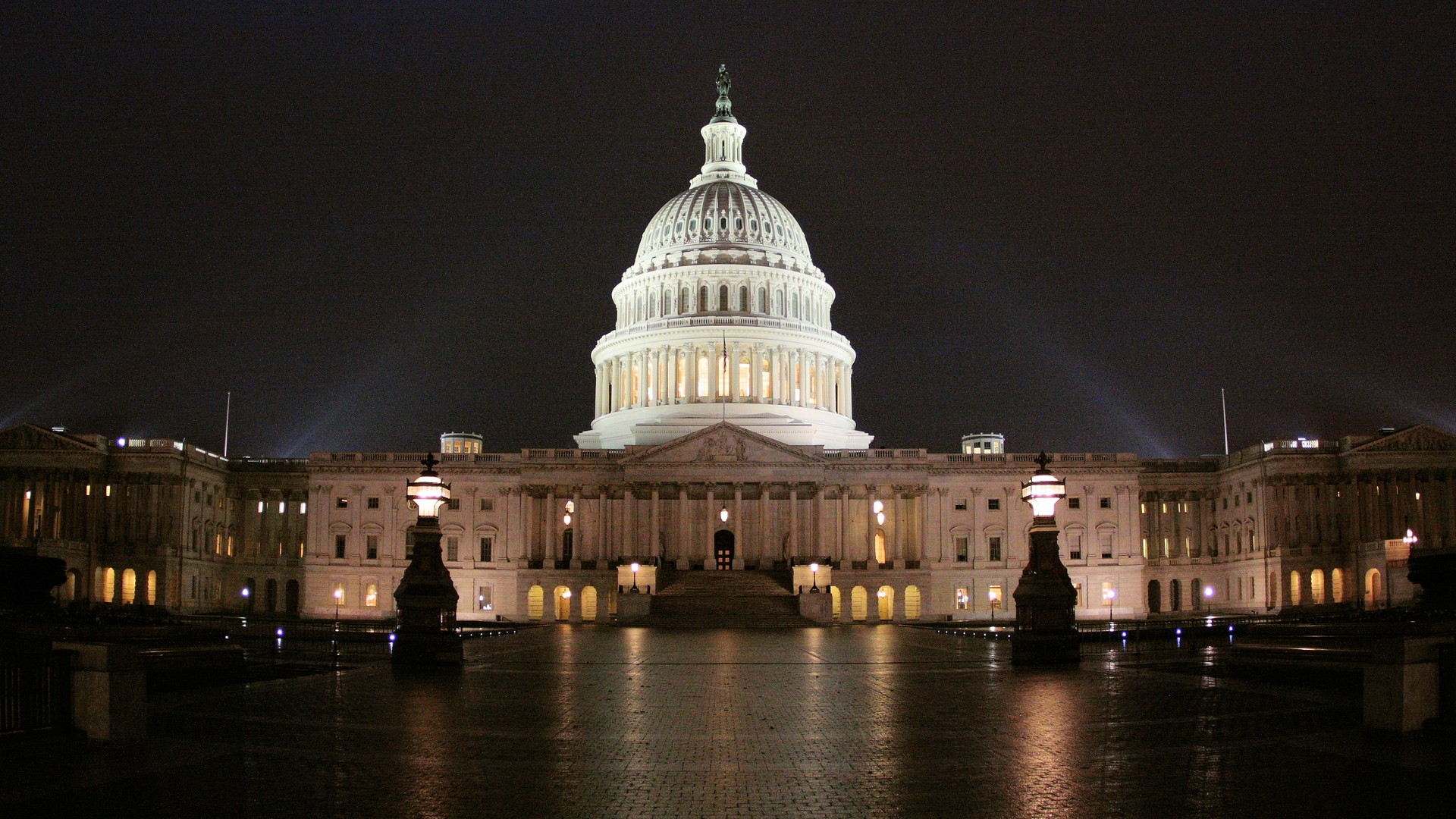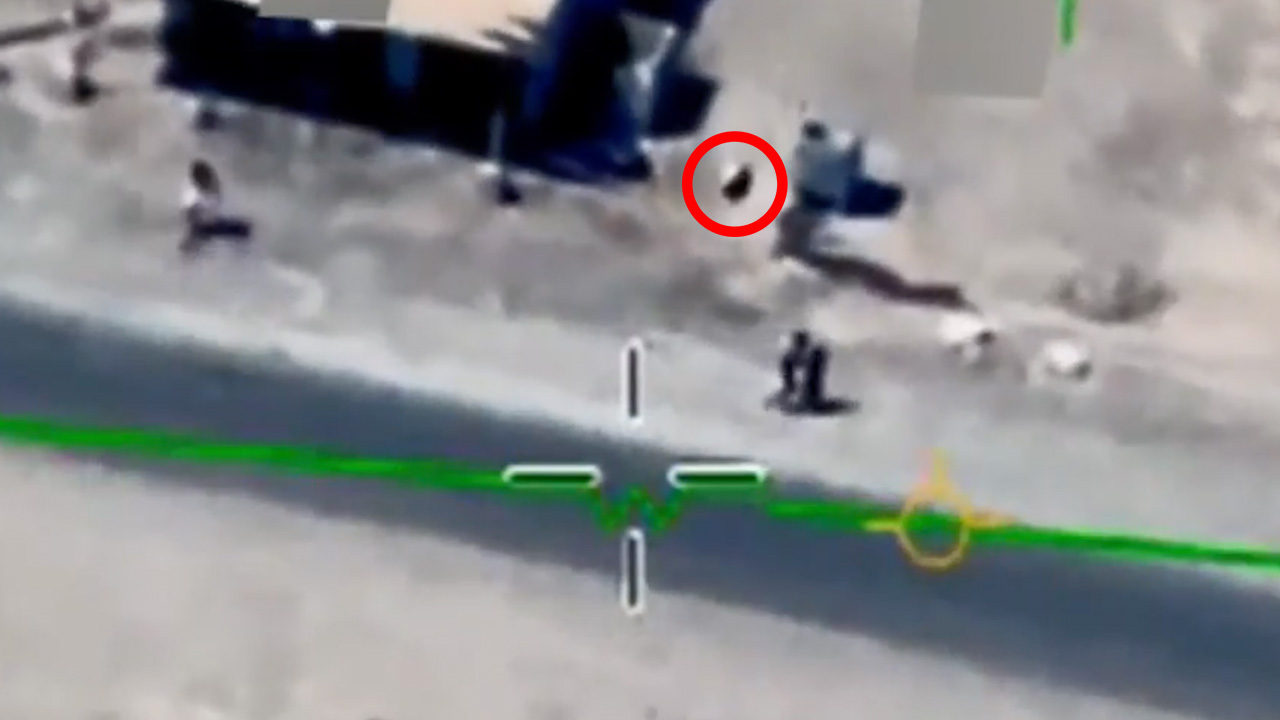
The United States Congress just passed legislation that directs the U.S. government to release records related to UFOs.
Some UFO records, anyway. According to new provisions in the Fiscal Year 2024 National Defense Authorization Act, the law that funds the U.S. military and related activities, the U.S. National Archives must collect for release all documents that "pertain to unidentified anomalous phenomena, technologies of unknown origin, and non-human intelligence."
None of those terms is defined in the bill, however. "Unidentified anomalous phenomena," or UAP, is a relatively a newly adopted and broadly defined term that encompasses UFOs in the sky in addition to unidentified objects underwater, in space or that appear to travel between these domains.
The records are to be released once 25 years has passed since their creation, unless the president directs them to remain classified, and newer records can be released sooner if the agency that created them allows it.
Related: UFO whistleblower tells Congress the US government is hiding evidence of 'non-human intelligence'
The language directing these records is known as the the UAP Disclosure Act, or the Schumer-Rounds Amendment. An earlier version of the amendment contained much stronger language that ordered the Department of Defense (DoD) to declassify records "relating to publicly known sightings" of UFOs without review, but the measure was removed from the legislation that eventually passed.
Despite the mandate in the bill, some UAP transparency advocates say the failure to pass the original amendment as written is a serious disappointment for those who feel the truth is out there and that the U.S. government has a responsibility to reveal it to the public.
"The most important components of the Schumer-Rounds language were dropped — an independent Senate-confirmed review board with subpoena power, professional staff to search out records, and other serious resources," said Douglas Dean Johnson, an independent researcher who writes on various aspects relating to UAP. "What is being enacted instead is a modest mechanism that is far less likely to result in the location, extraction and disclosure of important UAP-related records that may be tightly held or even long forgotten," Johnson told Space.com.
Christopher Mellon, Deputy Assistant Secretary of Defense for Intelligence in the Clinton and George W. Bush administrations, called the bipartisan back-and-forth over the NDAA "shockingly dysfunctional."
"Regarding the UAP issue, DoD and the [intelligence community] clearly have a serious trust issue with important members of Congress who are not backing down and likely to escalate," Mellon told Space.com via email. "I've seen this pattern many times. So, although the Executive Branch feels they dodged a bullet on the Schumer language, until they earn Congress' trust, they are going to be fighting a prolonged and likely losing battle."
As word began to trickle out onto social media that the Schumer-Rounds amendment was not going to pass as originally written, many UAP transparency advocates claimed that lobbyists working for for aerospace contractors were working to kill the language in the bill, in order to protect an alleged decades-long cover-up of crashed UFO technologies. "An extremely powerful Defense Aerospace lobby is pushing key politicians in Congress to block the Schumer Amendment to the NDAA," Australian journalist and UFO transparency advocate Ross Coulthart wrote on X (formerly known as Twitter).
However, those familiar with the NDAA amendment and the legislative process that eventually passed it think those claims are merely hearsay.
"I have seen no evidence of any substantial lobbying activity by aerospace firms against the UAPDA over the past 5 months. One cannot completely exclude some such influence, but any sizable campaign would leave tracks. I don't see them, and nobody has produced a single named congressmember who has referred to such activity, nor any document to support the notion," Johnson said.
Instead, resistance appears to have come from the DoD. According to the New York Times, a "person familiar with the talks who insisted on anonymity to describe them noted that the Defense Department also had pushed back forcefully on wider measures" in the bill.

Much of the current movement to pass legislation that could release U.S. government UFO records stems from a broader disclosure movement that has been building momentum in recent years both on social media and in the halls of Congress, thanks to claims made by former U.S. military and intelligence community personnel.
In July 2022, the DoD formed the All-domain Anomaly Resolution Office, or AARO, an office established within the Office of the Under Secretary of Defense for Intelligence and Security that was tasked with collecting and studying reports of UFOs/UAP near U.S. military installations or "other areas of interest."
In April 2023, the office's director told the United States Senate Committee on Armed Services that AARO had found "no credible evidence thus far of extraterrestrial activity, off-world technology or objects that defy the known laws of physics."
Even NASA commissioned an independent panel to inform the U.S. government how the agency might help better collect and analyze data related to UAP. "The top takeaway from the study is that there is a lot more to learn," NASA Administrator Bill Nelson said in September 2023 when the panel released its first public report.
"The NASA independent study team did not find any evidence that UAP have an extraterrestrial origin, but we don't know what these UAP are."
Related: The search for alien life
In July 2023, two former U.S. Navy aviators recounted their now-famous encounters with seemingly anomalous objects in military airspace to the House of Representatives' Subcommittee on National Security at the Border and Foreign Affairs.
Another witness at the hearing, David Grusch, a U.S. military combat veteran and Pentagon intelligence officer, told the committee that the U.S. government is in possession of crashed UAP and that "biologics came with some of these recoveries."
In response, some of the members of Congress even formed a UAP caucus in support of efforts to compel the federal government to release what records or information they claim it possesses related to UFOs and the alleged "UAP reverse engineering programs" it operates.
Representative Tim Burchett (R-TN), one of the more vocal members of Congress when it comes to the UAP transparency issue, said that the government has evidence that UFOs can "travel light-years" or at speeds that "defy physics as we know it," even claiming that some UFOs have technology that can "turn us into a charcoal briquette."







